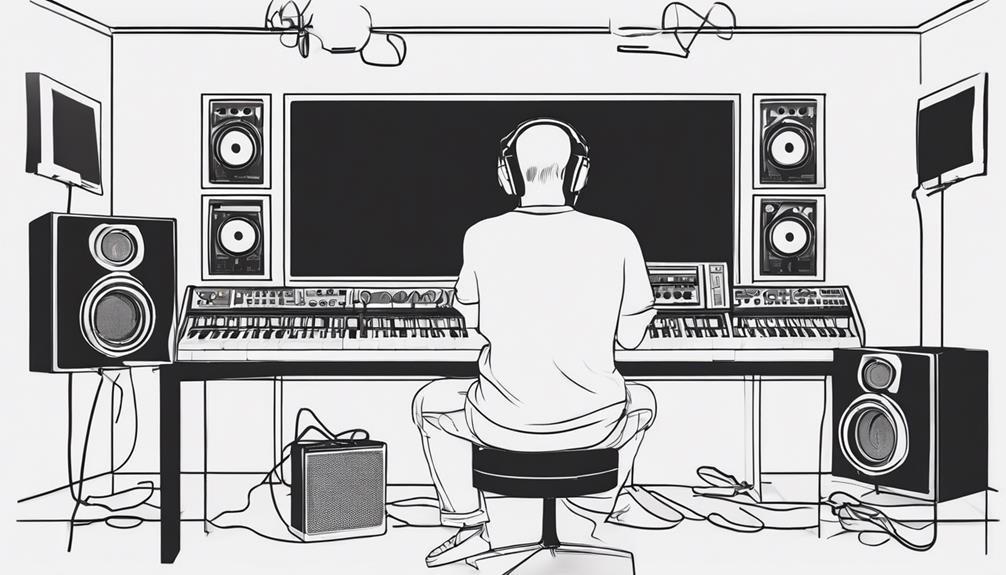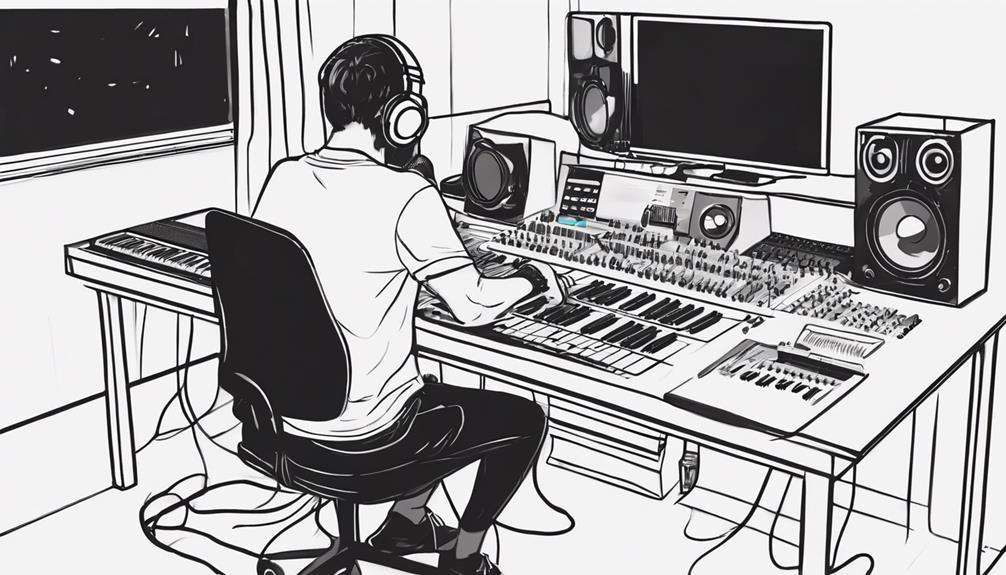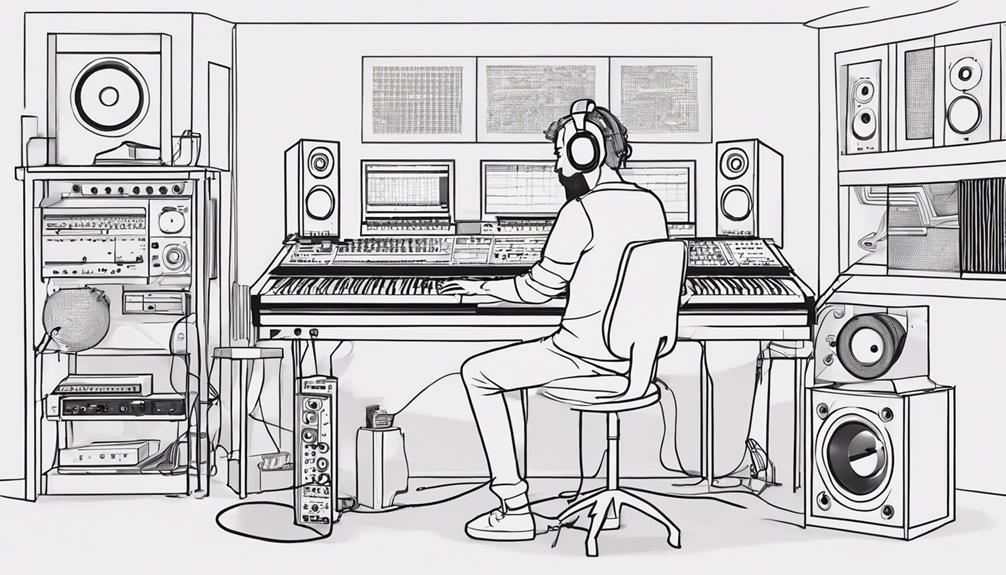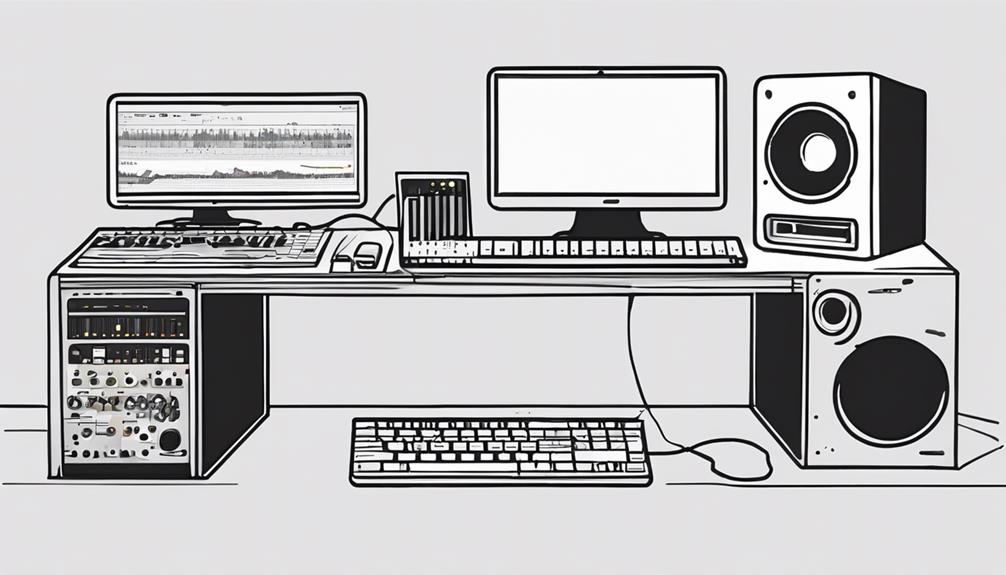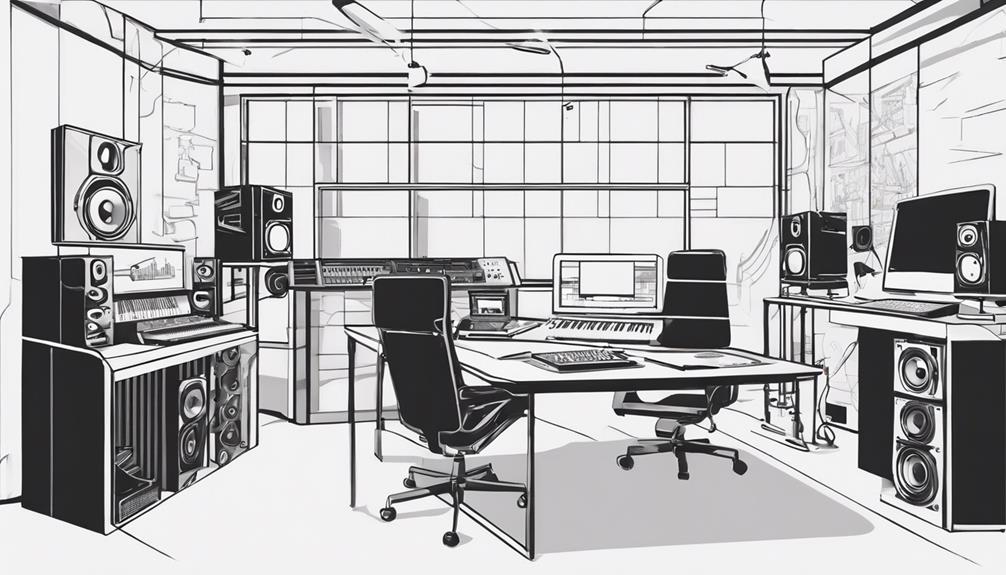To start a music production career, focus on mastering music theory, composition, and sound manipulation skills. Understanding Digital Audio Workstation (DAW) features, mixing, and mastering is essential. Enroll in formal education programs or take online courses for tailored training. Build a strong portfolio by producing tracks and collaborating with artists. Networking with industry professionals can open new career opportunities. Investing time and effort into these aspects will set a solid foundation for a successful music production career. More insights on advancing in this field are waiting for you.
Key Takeaways
- Master music theory, DAW use, and production techniques.
- Build a diverse portfolio with various genres and collaborations.
- Pursue formal education or online courses for tailored training.
- Network with industry professionals for opportunities and growth.
- Gain hands-on experience with industry-standard equipment.
Understanding Music Producer Role
To grasp the role of a music producer, you must understand their pivotal position in the music creation process. Music producers are essential in shaping the overall sound and feel of a song or album. They work closely with artists to achieve the desired outcome by leveraging their expertise in music theory, composition, and sound manipulation.
Collaboration is key in a producer's role, as they not only bring their vital skills to the table but also their strong communication skills to effectively work with artists, songwriters, and engineers. Producers guide the recording and mixing processes, selecting sounds and instruments that align with the artist's vision. Their ability to manipulate and enhance the audio elements is what sets them apart in the music industry.
Developing Essential Skills
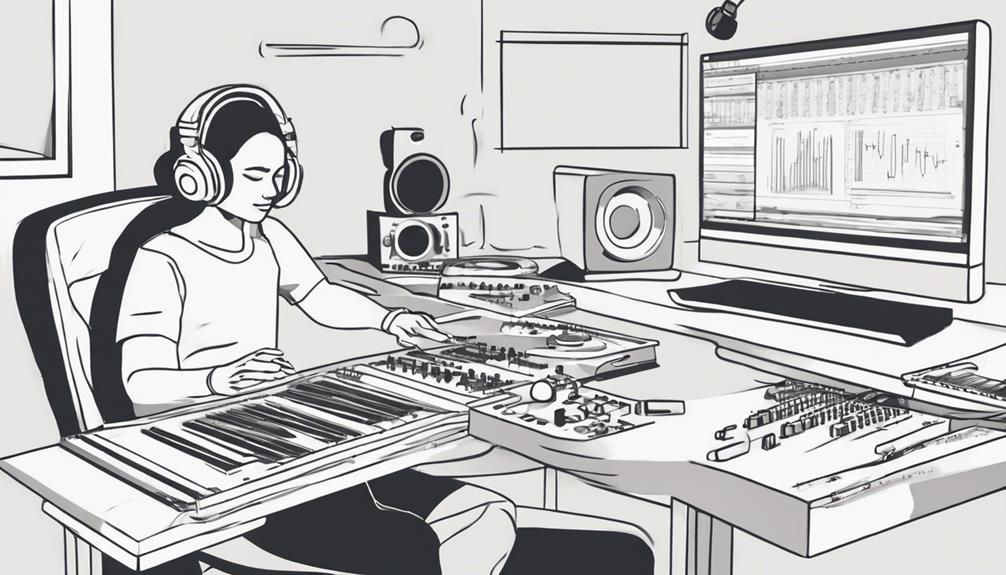
Developing essential skills in music production involves mastering music theory, composition, and instrument knowledge. To excel in this field, you must also understand DAW features, mixing, mastering, and audio manipulation. Additionally, proficiency in production techniques and instrumentation across various genres is important. Here is a breakdown of key skills to focus on:
| Skills | Description | Importance |
|---|---|---|
| Music Theory | Understanding scales, chords, and harmony to create cohesive musical compositions. | Fundamental |
| Composition | Crafting melodies and arrangements that convey emotion and tell a story. | Essential |
| Ableton Live | Mastering this popular DAW for seamless workflow, creative production, and live performance. | Critical |
Education and Training Options
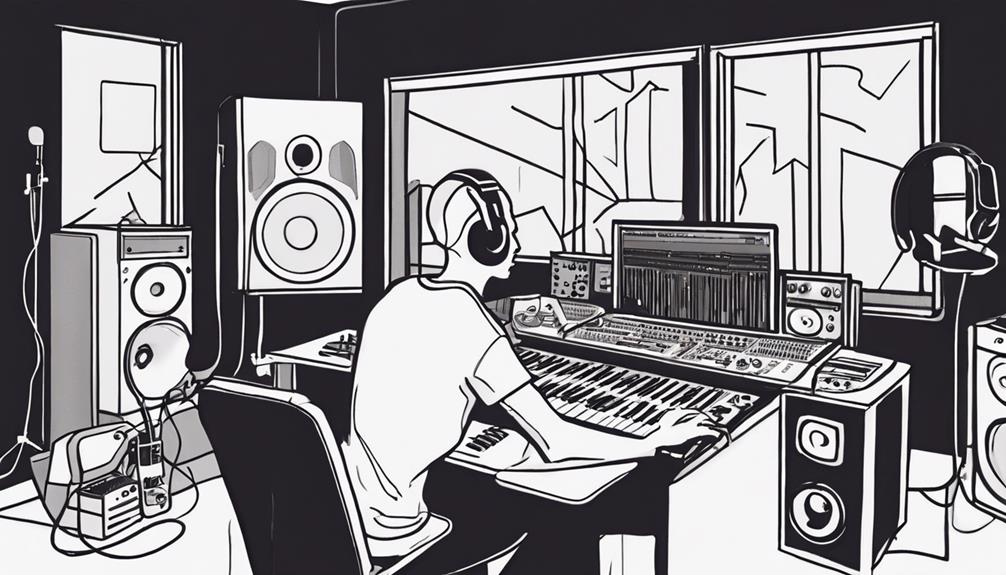
Considering your career in music production, exploring various education and training options is essential for honing your skills and gaining industry knowledge. Formal education programs at institutions like NYU or Parsons offer tailored training in music production techniques and the music business.
Additionally, online courses, such as those provided by Yellowbrick, can enhance your understanding of the industry from the comfort of your home. Seeking hands-on experience through formal education can provide access to industry-standard equipment and valuable networking opportunities.
Online learning presents flexibility for those with other commitments, allowing you to learn at your own pace. By investing in education and training, you can significantly improve your skills and knowledge, laying a solid foundation for a successful music production career.
Building a Strong Portfolio
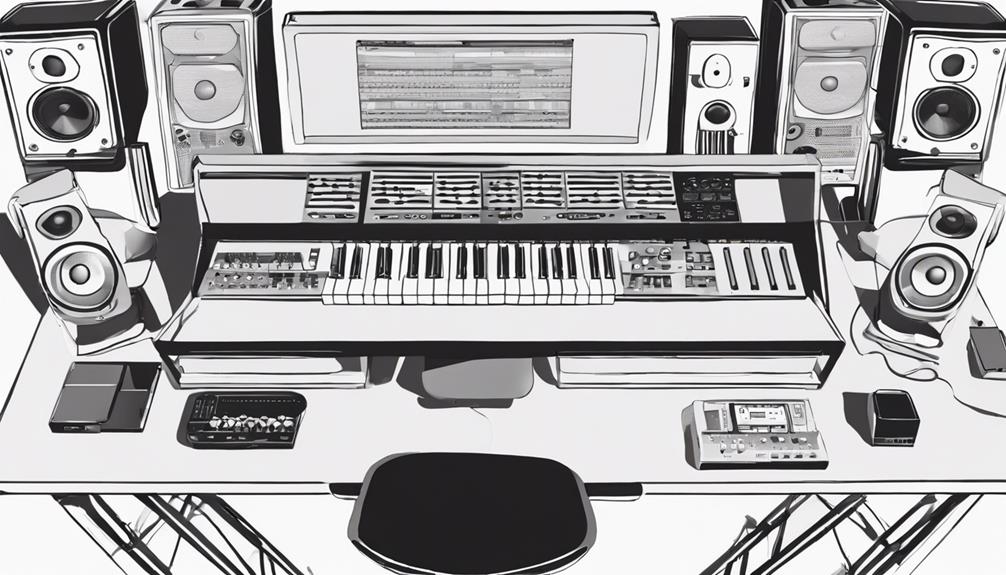
Exploring education and training options sets a strong foundation for your music production career; now, focus on building a robust portfolio to showcase your skills and style to industry professionals.
A strong portfolio is vital in attracting potential clients and impressing industry professionals. Start by producing tracks, collaborating with artists, or interning with experienced producers to gain valuable experience. Interning or assisting established producers can provide insights and hands-on skills that will enhance your portfolio's credibility.
Your portfolio serves as a confirmation of your capabilities, creativity, and professionalism as a music producer. It's a key tool that not only boosts your credibility but also opens doors for future opportunities in the music production industry.
Networking for Career Growth

Establishing a robust network in the music industry is essential for progressing your career in music production.
Cultivating genuine relationships with industry contacts can lead to valuable career opportunities and collaborations. Building a strong network of connections within the music production field enhances visibility and opens doors for growth.
Meaningful relationships with fellow producers, artists, and industry professionals provide support and guidance on your career journey. Networking events, conferences, and online communities offer opportunities to connect with like-minded individuals and expand your circle of influence.
Frequently Asked Questions
How to Start a Music Production Career?
Start your music production career by mastering music theory, instrument skills, and software like Ableton Live. Understand the producer's role in overseeing music creation. Build a portfolio through collaborations, internships, and producing tracks. Explore online courses for flexible learning options.
How Do I Start a Successful Music Career?
To start a successful music career, you must harness your passion, hone your skills, and embrace opportunities. Network, learn, and create fearlessly. Build a strong foundation, stay adaptable, and remember, your journey is a symphony waiting to unfold.
Where to Start With Music Production?
Start with learning music theory and mastering production software. Explore various genres and production techniques to find your style. Understand the producer's role and consider education for skill enhancement and networking in the industry.
Is Music Production a Realistic Career?
Music production is a realistic career choice. Just like a well-tuned instrument, your dedication and skills can harmonize to create a successful career. With technology advancements and a growing demand, you can carve your path in the industry.
Conclusion
You've discovered the secret to launching your music production career. By mastering your skills, building a killer portfolio, and networking like a boss, you're on your way to becoming a music production superstar. You just need the right combination of determination and strategy to make it happen. Whether you’re collaborating with local artists, sharing your beats online, or honing your sound, every step brings you closer to your dream. There’s no better time than now to start a music production career and turn your passion into a thriving profession.
So grab your headphones, fire up your DAW, and get ready to make some magic in the studio. The world is waiting for your unique sound – go out there and show them what you've got!

